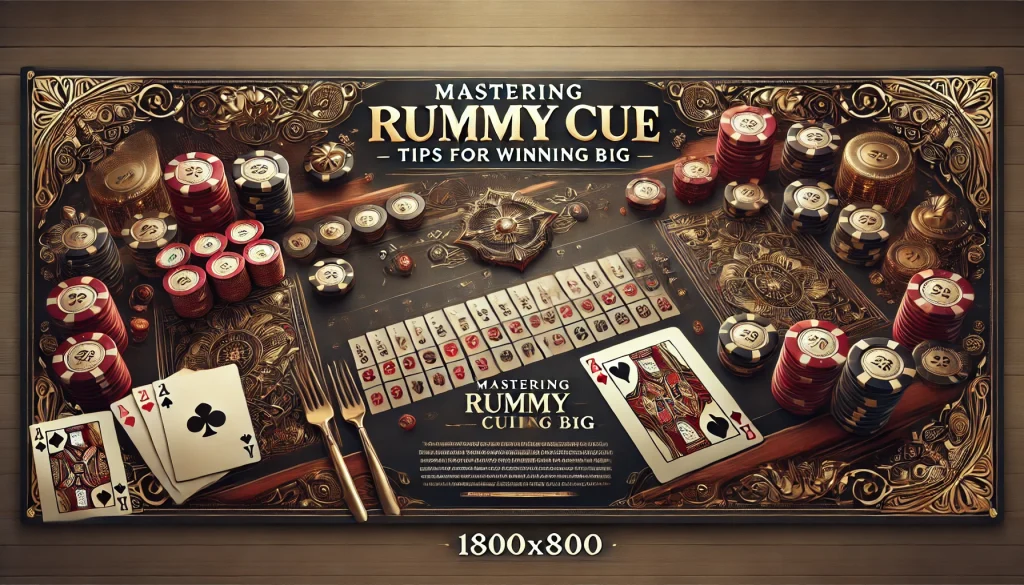
Learning Rummy: A Complete rummy culture Guide Rummy is a well-known card game that has captured the attention of players worldwide with its unique combination of strategy, skill, and a little bit of luck. Forming runs and sets from a standard deck of cards is the fundamental aspect of the game. Three or four cards of the same rank but different suits make up a set, whereas three or 777 slots more cards of the same suit in a row make up a run. In order to win, you must combine these combinations to lower the total number of points in your hand.
There are several variations Classic 777 Slots APK of the game, such as Gin Rummy, Indian Rummy, & Kalooki, & it can be played with two or more players. The basic ideas are always the same, even though each variation has its own set of guidelines and subtleties. In order to make legitimate melds while monitoring the moves of their rivals, players alternately draw and discard cards. Since it establishes the framework for more complex strategies & tactics, knowing these fundamentals is essential for any player hoping to succeed in rummy. Players must create a solid strategy that incorporates both offensive and defensive play if they want to succeed in rummy.
Focusing on making melds as fast as you can while keeping an eye on your opponents’ cards being discarded is one strategy that works well. Players can assess what their rivals are gathering and modify their own strategy accordingly thanks to this dual focus. If your opponent discards a card that you think they need, for example, you might want to keep it to stop them from moving forward. Having good hand management is another essential component of strategy. While taking into account the possibility of future melds, players should give priority to melding cards that are almost complete.
Knowing which cards have been drawn & thrown away can help you determine which melds are still feasible. Players should also have a flexible approach because it can make all the difference in a game if a certain strategy isn’t working. One of the most important decisions in Rummy is when to discard a card.
Throwing away a card that might aid an opponent in finishing their meld can hurt your chances of winning. Players must therefore evaluate both their own hand and the possible effects of their discards on the hands of their opponents. For instance, it might be wise to keep cards from the discard pile that are closely related to your own melds for a little while longer if you observe an opponent taking them up.
On the other hand, understanding when to discard particular cards is just as crucial. You should probably throw away cards that are redundant in your hand or unlikely to form a meld. The game’s current state and your overall strategy should be carefully considered when making this choice.
It’s a fine dance that calls for astute observation and strategic foresight to strike a balance between the need to strengthen your own hand & reducing opportunities for your opponents. Melding is the key to winning at Rummy, & you can greatly increase your chances of winning by maximizing points through skillful melding. In order to minimize the point value of the unmelded cards in their hands, players should try to make as many valid melds as they can. Generally speaking, the point system gives cards distinct values. For example, face cards (Kings, Queens, & Jacks) are worth 10 points each, while numbered cards retain their face value.
The way that aces are used in melds determines whether they are worth one point or eleven. Forming high-value sets and runs early in the game should be a player’s top priority if they want to maximize points through melding. Instead of holding onto lower-value cards that might not make a big difference in your final score, it might be beneficial to concentrate on your high-value cards first if you have several that can form a set or run. Also, you can predict which melds are still possible & which ones might be out of reach by keeping track of which cards have been played. Two strong Rummy tools that can significantly change the game’s dynamics are jokers and wild cards.
These cards are extremely useful for finishing challenging combinations because they can be used to form melds in place of any other card. In order to accomplish a high-value run or set that would otherwise be difficult to accomplish, players should strategically utilize these wild cards. For instance, if you have a joker in your hand, think about using it. But it’s crucial to use jokers sparingly. Failure to meld them before the game ends can result from holding onto them for too long. Also, consider how your use of wild cards might influence the tactics of your opponents.
It could be worthwhile to think about using or holding onto a joker you have as leverage against an opponent if you see they are almost finished with a meld that could benefit from it. Knowing what your opponents are doing is just as important in rummy as paying attention to your own hand. An understanding of their tactics and possible melds can be gained by observing which cards they draw and discard.
For example, it is likely that an opponent is trying to finish a run or set involving cards that match a particular suit or rank if they routinely remove cards from the discard pile. Also, you can learn a lot about an opponent’s hand by observing when discards are made. A sudden discard of a card that they had been holding onto for a few turns could mean they have changed their mind about a certain strategy or have discovered a better one. By remaining vigilant and examining these trends, players can make wise choices regarding their own gameplay & possibly thwart the strategies of their rivals.
Rummy requires efficient hand management, which includes resource allocation during the game in addition to melding. Gamers should constantly check their hands for possible melds and think about which cards could turn into liabilities if they aren’t melded by the end of the game. Planning for future turns & pursuing immediate melds must be balanced for this assessment.
The strategic use of time and turns is another aspect of resource management that goes beyond simple card selection. Gamers should not rush into melding or discarding without carefully weighing the effects of each move on their overall strategy. Spending time weighing your options can result in better outcomes down the road. Also, by keeping your strategy adaptable, you can change course as needed in response to how the game plays out.
In rummy, patience is a quality that is frequently disregarded but has a big impact on a player’s success rate. In addition to rapid thinking, the game demands the capacity to wait for the ideal opportunity to execute strategic moves. Making snap decisions can result in errors that could cost you the game or important points.
Players can take the time necessary to carefully examine their hands and weigh all potential outcomes before acting by exercising patience. Persistence is just as crucial; even in the face of difficult hands or formidable opponents, success can eventually be achieved by keeping a positive outlook. Every game offers a chance for growth and learning, so players should keep that in mind. Finding errors or lost chances in previous games can help improve performance in the future. By embracing both patience & perseverance, players can develop resilience in their gameplay and overcome obstacles with assurance and expertise.
To sum up, learning Rummy entails comprehending its core ideas & creating strategies that cover both offensive & defensive play. Players can greatly increase their chances of winning this captivating card game by staying aware of their opponents’ moves, managing resources sensibly, practicing patience & persistence, maximizing points through melding, using wild cards effectively, and knowing when to discard or hold cards.lottery sambad old



